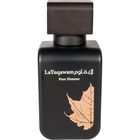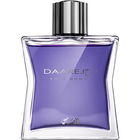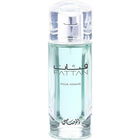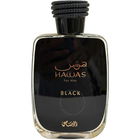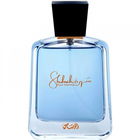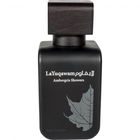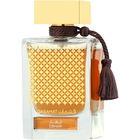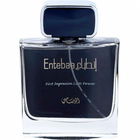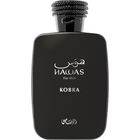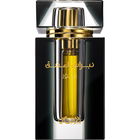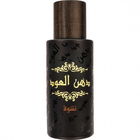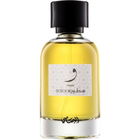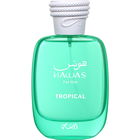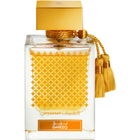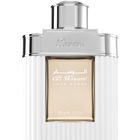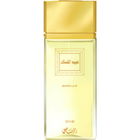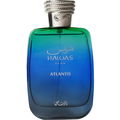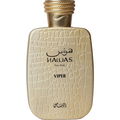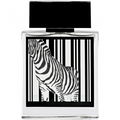
Apicius
1328 Reviews

Apicius
Helpful Review
6
Herbal Liqueur from Dubai
If you take a look at the right column you may wonder why Tasmeem is owned by so many Parfumo users. The answer is that a popular online shop in Germany (Iparfumerie.de) finally got engaged with Arab perfumes and perfume oils. They put a bunch of products by Rasasi and other brands into their line-up, and Rasasi's Tasmeem is the one who “made it” here. But considering the price of less than 20 €, is this really the Arabic gents' cologne that we are waiting for?
A first glance at the beautiful flacon will definitely earn this perfume our sympathy and calm down the reservations. The blue and green design is pleasing, yet unusual – attractively different from the usual perfume bottle style. It is a beautiful item that one would like to touch.
After a close test I can well understand why this fragrance attracts people – although I should exclude myself. This is Arabia for the very cautious, paired together with barbershop style and backed by a base note much appreciated by many. In our Western use of the word, the base has to be called oriental.
Tasmeem has a distinct development, and to some extend the fragrance lives out of the contrasts formed by the different phases. The most attractive and “Arabic” is the top notes. Here, dark and herbal notes are combined with discreet sweetness. And don't be afraid of the cumin: I cannot detect the sometimes problematic appeal of sweat that this note is rumoured. There is some cardamom with its citric and ethereal aspect, and most of all the mugwort. Maybe it is just a chestiness but in this part of the development there seems to be a very slight appeal of one of the popular synthetic oud notes, but only traces of it.
Against this the sweetness sends a clear liqueur-like signal. I felt reminded of the discontinued Lui by Rochas of which we do not have a proper substitute.
Quite soon the attractive head note gives way to floral and creamy hints. Also, a certain soapiness crops up – this is what I connect to the barbershop style mentioned before.
Already during the heart notes the oriental base becomes noticeable. This is built around the tonka bean and not an innovation by far. We are presented a well-known accord whith an earthy and woody impression that I like to compare with the scent of wet sand.
Considering the development one has to make concessions. Although the longevity is quite decent, the oriental base is reached too quickly. A little trick may help: the attractive head notes persist much longer if you spray Tasmeem on clothes. In doing so, the delicious herbal liqueur goes a long way!
For the followers of the oriental direction in perfumery and especially the “sand accord”, Tasmeem is a good choice as an everyday perfume. The quality should excel most of what is available among the orientals up to 50 €. But does is always have to be cheap? Perfume is luxury, shouldn't we rather exclude it from the general need to save money?
Looking at the so interesting Arab brands, I sadly miss offers in the upper price section of the mass market, and in the lower section of niche perfumery. I admit they would need decent distribution – because nobody would blind-buy the more expensive perfumes. But with Tasmeem and other fragrances of that kind I'd like to pose the question: If the Arabs can do this for 20 €, what would they be able to provide for 100 €? Hopefully, we should see some activity in the future.
A first glance at the beautiful flacon will definitely earn this perfume our sympathy and calm down the reservations. The blue and green design is pleasing, yet unusual – attractively different from the usual perfume bottle style. It is a beautiful item that one would like to touch.
After a close test I can well understand why this fragrance attracts people – although I should exclude myself. This is Arabia for the very cautious, paired together with barbershop style and backed by a base note much appreciated by many. In our Western use of the word, the base has to be called oriental.
Tasmeem has a distinct development, and to some extend the fragrance lives out of the contrasts formed by the different phases. The most attractive and “Arabic” is the top notes. Here, dark and herbal notes are combined with discreet sweetness. And don't be afraid of the cumin: I cannot detect the sometimes problematic appeal of sweat that this note is rumoured. There is some cardamom with its citric and ethereal aspect, and most of all the mugwort. Maybe it is just a chestiness but in this part of the development there seems to be a very slight appeal of one of the popular synthetic oud notes, but only traces of it.
Against this the sweetness sends a clear liqueur-like signal. I felt reminded of the discontinued Lui by Rochas of which we do not have a proper substitute.
Quite soon the attractive head note gives way to floral and creamy hints. Also, a certain soapiness crops up – this is what I connect to the barbershop style mentioned before.
Already during the heart notes the oriental base becomes noticeable. This is built around the tonka bean and not an innovation by far. We are presented a well-known accord whith an earthy and woody impression that I like to compare with the scent of wet sand.
Considering the development one has to make concessions. Although the longevity is quite decent, the oriental base is reached too quickly. A little trick may help: the attractive head notes persist much longer if you spray Tasmeem on clothes. In doing so, the delicious herbal liqueur goes a long way!
For the followers of the oriental direction in perfumery and especially the “sand accord”, Tasmeem is a good choice as an everyday perfume. The quality should excel most of what is available among the orientals up to 50 €. But does is always have to be cheap? Perfume is luxury, shouldn't we rather exclude it from the general need to save money?
Looking at the so interesting Arab brands, I sadly miss offers in the upper price section of the mass market, and in the lower section of niche perfumery. I admit they would need decent distribution – because nobody would blind-buy the more expensive perfumes. But with Tasmeem and other fragrances of that kind I'd like to pose the question: If the Arabs can do this for 20 €, what would they be able to provide for 100 €? Hopefully, we should see some activity in the future.
1 Comment







 Top Notes
Top Notes  Cumin
Cumin Cardamom
Cardamom Mugwort
Mugwort Heart Notes
Heart Notes  Iris
Iris Rose
Rose Base Notes
Base Notes  Tonka bean
Tonka bean Vanilla
Vanilla Amber
Amber Musk
Musk Patchouli
Patchouli Sandalwood
Sandalwood

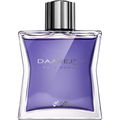











 Chizza
Chizza Jolanda12
Jolanda12 Achilles
Achilles Skei
Skei Basti87
Basti87 Elbchen
Elbchen Thizhy
Thizhy Orodion94
Orodion94 Schili
Schili N0M1ND
N0M1ND
